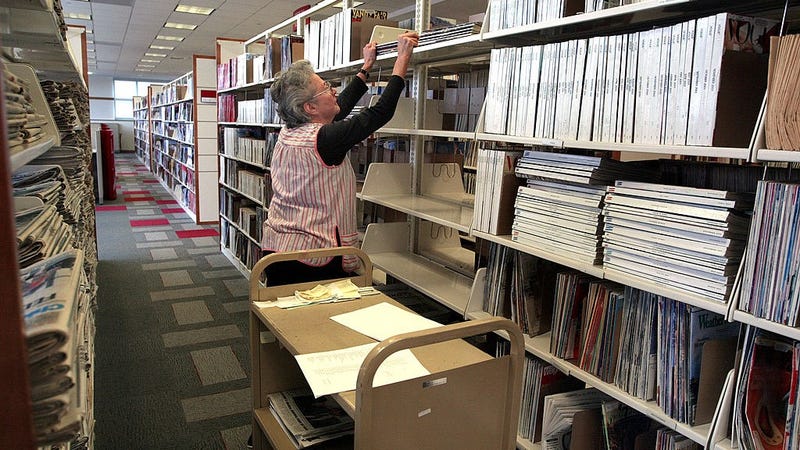
Yanna McGraw is the first full-time social worker at Central Library in Indianapolis, IN and has helped a number of people in more ways than helping them return a book.
After seeing some patrons struggle with complex life issues, the Indianapolis Public Library hired McGraw. She is one of about a dozen social workers employed by libraries in the Midwest.
McGraw has been on the job for about five months, and has already helped guests with questions about the Department of Child Services, those dealing with housing insecurity or difficulty accessing federal stimulus money, and even assisting people in need of mental health resources.
McGraw says she's able to help patrons in ways that librarians can't. Recently, she helped a man staying at a homeless shelter get a prescription filled by connecting him with a family member to help him pay for the medication.
"I'm able to spend that time, pick up the phone, ask the question, send an email to a community partner, if I have that relationship," McGraw said.
Libraries have always been a place for people to get information and solve problems, but more recently, guests are coming in with problems that librarians aren't trained to do. That's where social workers can become a major asset to libraries.
"We're a safe place, we're a clean place, where we try to be a helpful place," Indianapolis Public Library interim CEO John Helling said. "And so we do find patrons experiencing just a wide variety of needs that just end up in our building, because we're the only place where they can go."
Libraries often struggle to find funding for these types of positions, but the Indianapolis Public Library repurposed its operating budget to fund a social worker position after a librarian retired.
Melanie Huggins, president of the Public Library Association, said that there are still many challenges in hiring social workers. One of the barriers is the idea that libraries aren't intended to do this type of work.
"I think library directors, even if they think it's a really great idea, they still have to balance it with all the other needs that they have in their community and within their library," Huggins says.
While Beth Whaler, director of the School of Social Work at the University of North Carolina at Charlotte, suggests that because libraries are essential to local communities that they can be more helpful than other public places.
"Sometimes they're the first ones to know what gaps [in social services] exist, because those are the issues that are coming in the door with the patron population there," Whaler says.
McGraw went on to add that this role is the perfect job for her, and has created an open-door policy to help build relationships with guests.
"Just helping people navigate and make those connections is really important to me," McGraw said. "And when I go home, I am happy and content that I made a difference. It might be little differences, but it's the difference in some way in someone else's life."



